A Minister had claimed that all 50 new Apache helicopters had been ordered from Boeing, so I asked the MoD.
Former Parliamentary Under-Secretary of State for Defence, Stuart Andrew, said in response to this question from Andrew Rosindell, the Member of Parliament for Romford:
“To ask the Secretary of State for Defence, when her Department plans to complete its order for all 50 AH-64E Apache attack helicopters.”
Stuart Andrew responded:
“The order for all 50 Apache AH-64E attack helicopters was placed with the US Government in June 2016 and deliveries are planned to be complete by early 2024. The US Government manages the timing of subcontracts to support the required aircraft delivery schedule.”
No such order was placed, a commitment to 50 was made but only 38 were actually ordered at the time.
So, I asked the Ministry of Defence the following:
I would like to know when all 50 Apache AH-64E Guardian helicopters were ordered and if not all 50 have yet been ordered, when the final order will be made and for how many aircraft?”
The response to my Freedom of Information request is as follows:
“Under a Foreign Military Sales (FMS) case signed in June 2016, the UK MOD placed an order with the United States Government (USG) for 50 AH-64E Apache helicopters.
Currently, the USG has ordered 38 aircraft to meet the UK requirement and will order the remaining 12 at the optimum time to meet our required delivery schedule.
Under Section 16 of Act (Advice and Assistance), it may be helpful to know that, under the FMS process, the USG places orders for aircraft from the manufacturer (Boeing) in time to meet the MOD’s required delivery schedule. The USG wil use their buying power, leveraging the US Army’s requirements and that of other international customers, to negotiate the best possible price and therefore achieve best value for money.
The required delivery schedule remains unchanged from that agreed in June 2016.”
Further to the above, at the end of last year Andrew (in response to a request for information from the chair of the Defence Select Committee) even points out that the remaining 12 have still to be ordered.
This letter is dated December 2018:
While the UK says it has committed to ordering them all, it’s late in doing so.
In July 2017, Harriett Baldwin, then Under Secretary of State for Defence Procurement said:
“The Ministry of Defence is buying 50 Apache AH-64E helicopters from the US Government under a Foreign Military Sales arrangement. The US has ordered the first 38 of the helicopters as part of its own larger purchase, under a multi-year contract with Boeing. This ensures we can take advantage of economies of scale and secure best value for the UK taxpayer, while procuring a vital capability for the UK. We expect the remaining 12 helicopters to be incorporated within the contract by the end of the year.“
That was said in 2017 and it’s now 2019, this has not happened.
So there we have it.


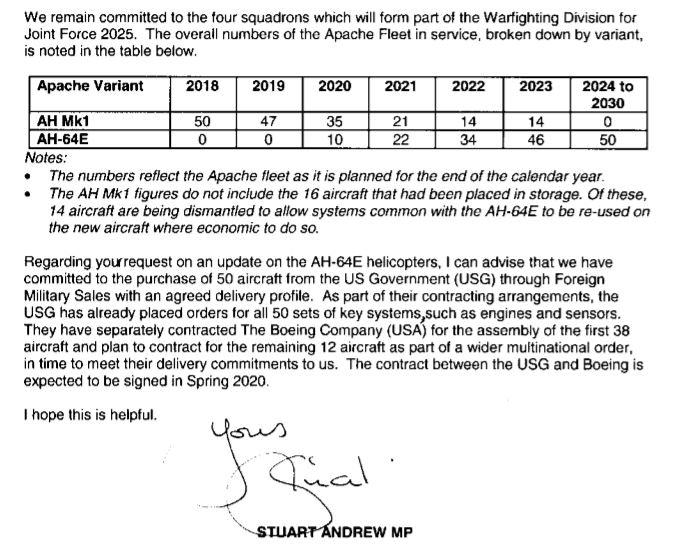
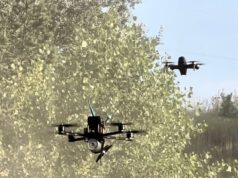
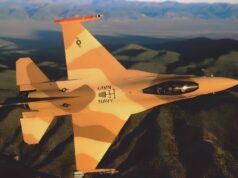


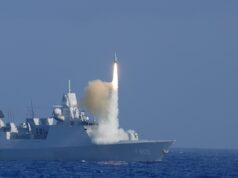

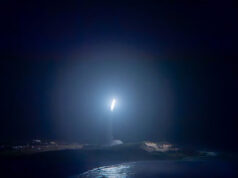
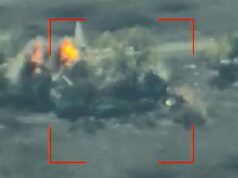
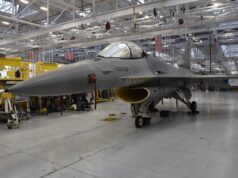
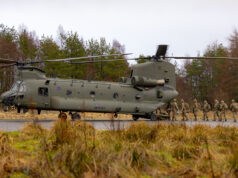

So the order was placed with the middleman , who has not yet ordered all 50 with the manufacturer.
Yes. All these articles have been a storm in a teacup.
Indeed, but I found this article useful in understanding how the FMS process works and the role of the USG in terms of being the middleman who actually places the order with the manufacturer. I didn’t know that stuff.
Do we know what the required delivery schedule is?
The USG is using it leveraging power. But equally our 50 Apaches are adding to that leveraging as well. Indeed quite a number of other countries have bought Apaches as well and at times this must affect buying power.
From what I read we bought over 60 Apaches previously built in Britain. These seemingly cost £44 million each. Because the new order is from the USA and build as part of a larger USG contract they will cost £8.5 million. If this is true (and we must be sure we are not equating apples with oranges) this is staggering and certainly we can see why they are being procured the way they are. (this info from forces network site)
Wow if that huge price difference is right that’s astonishing even considering parts will come from our old apaches. I read this the other day though —
“ Approval for the re-manufacture of fifty of the UK’s WAH-64 Mk 1 fleet to AH-64E Apache Guardian standard had been given by the Defense Security Cooperation Agency in August 2015”
I know they are striping all parts worth striping of our old apaches for our new ones like the Longbow Fire Control Radar to save money but they are getting brand new air frames obviously yeah?, and would selling all the old Apaches not bring in the money to just buy all new parts instead of striping old ones. Or are our apaches getting to old and worn out to sell?
Going back in history to the first Apache order, it has similarities with the Nimrod debacle. The aircraft were needed, but there was a strong move to do as much as possible in UK. So changes were made, the most notable was the engine change from the standard US engine to the Rolls/Turbomeca 322. Also the whole airframe was to be built here. Price reared it’s ugly head, so changes were made and the airframes were built in the US and shipped to Westland for fitting out and testing. The net result was a huge increase in price for essentially the same aircraft that came off the Boeing production line. It was said at the time that you could have given each of the 3,000 workers at Westlands in Yeovil £1m, bought the aircraft direct from the US, and still had change left over from the total contract cost.
It is an absolute text book example of how not to do it.
From memory, the Army didn’t want sixty, that figure was arrived at by being the minimum number that it was ‘worth’ setting up a new production line at Yeovil. Does make one feel angry at the thought of how many extra Merlin HC4s could’ve been bought, at a time when they were desperately needed, if we’d bought the Apaches of the shelf and given Westlands extra work on existing production lines to keep them busy.
Indeed. It would have been better to buy Apache off the shelf from the US and give Westlands some money to develop a product that could have got commercial sales to keep them alive…(of course this would be illegal under state aid rules…but there are ways).
The MOD is being disingenuous. Yes, an FMS order for fifty was placed with the US DOD and the DOD determines when the order is placed with the manufacturer. But DOD has a delivery schedule furnished by the MOD. It hasn’t placed the order for the remaining 12 Apaches since it has determined that the entire order is still on schedule and the MOD has not changed the priority of that schedule. Obviously, the MOD has given the US a financing schedule as well and it would only make sense to do so to manage MOD finances. Bottom line, the US hasn’t ordered the last batch of Apaches because the MOD hasn’t asked it to accelerate their procurement.
As long as the price for all 50 was fixed at the point of the agreement for a Foreign Military Sale (FMS). If not, then any savings we made then are now lost through currency exchanges and a firming of the order for an additional 12 where the price was NOT fixed has, once again, smashed the budget.
If the former, well done MOD!
If the latter, penny pinching costs pounds …. again!
If the contract was placed the only way the price can change is by contract modification.
That’s not strictly true, as with all contracts, it depends on how it was written.
If it specifically states “the price per unit will remain constant” or the “price for the entire fulfillment of X items will remain constant” then yes, I’d agree…However if the contract doesn’t state that or states “Price at time or order might change depending on ……” then it could go up or conceivably down!
Youd like to think that the money this involves they would have nailed that contract to a single cost per until through the lifespan of delivery or a single cost per PO delivery.
So he was both right and wrong depending on which side of the mountain you decide your going to look at. Classic case of “ it’s not really that simple mate, but we do actual know WTF we are doing so chill”.
All interesting stuff. Would I be correct in assuming that since the GBP has dropped against the USD, the price of these remaining helicopters will be considerably more than originally budgeted for? 38 Apaches seems a very small number for a country of our size, I must say! Is that all the battlefield helicopters operated by the Army Air Corps? I always assumed there were so many more in truth. I am sure that an article I read a while ago about the Royals flying them indicated there were many more available to HM forces.
50 Apache, 34 Wildcat, 6 Dauphin.
34 Wildcat have replaced 200 plus Lynx and Gazelle.
Scandalous. But of course public none the wiser unless one keeps up with these things as some on this site do.
Thankyou. I can only say how amazed I am at these numbers. I used to admire the Gazelles at air shows. They were the racing cars of the air and described as much. I am surprised they have gone! They surely had years of life left in them? These small numbers are surely inadequate to withstand any losses.
We still have a handful of Gazelle. They are not deployed on ops so so did not list them. BATUS has a flight, for example.
It looks like we still have some Gazelles until 2025. “UK Armed Forces Equipment and Formations 2018” confirmed 19 in service out of 34. The 2019 MoD report update is due out on Aug 8th so we can see if this changes but Gazelles have been stable at those numbers since at least 2016.
I am not really sure that you would want to be in a Gazelle under enemy fire, they may be fast and agile but its now all about armor and active/passive defensive aids.
Scandalous indeed Daniele, the Wildcat/Lynx ratio is actually considerably worse (and it’s plenty bad enough, as you say) the Lynx could carry 8 and the Wildcat only 4!
Very poor Indeed, I fear it will take a military disaster to bring these sort of massive equipment gaps to the attention of the general public.
I’ve said it before, but I wish someone could explain to me the military case for procurement of the Wildcat for the Army..
Hugely expensive and less capable ( in real terms) than the aircraft it replaced in service.
This sort of politically led procurement has to stop.
Its not quite that simple though, the functions carried out by Gazelle and Lynx are met in other ways now too. We have acquired Watchkeeper and Desert Hawk and nano UAS and much improved situational awareness via Shadow (for SF) and in future from Ajax. There is probably an enduring requirement for some additional utility helos (not just for the AAC but also for the RN), but as far as the ISTAR function goes a mix of manned helos with sophisticated sensor suites, ground based systems and and UAS is required. The Army Wildcats could do with a radar and weapons fit however.
I accept this as far as ISTAR goes. But numbers still important as a battlefield taxi sort, utility as you say.
And as for Watchkeeper, does 47RA even have a battery operational yet?
The 300 aircraft of the AAC are now less than 100.
An experienced drone pilot can earn £50k in civilian life, staff retention is difficult.
Watchkeeper testing is continuing.
Forget where I saw it, but I see flights taking place at Boscombe, as originally intended.
47regt RA Facebook account posted that info on 12 June 2019.
Oh? Ta. I’ve just looked further. Two batteries now operational, but was not reported by Mod apparently. That’s according to Janes.
When the requirement for a gunship helicopter was being formulated in 90s the original number to be procured was 120 plus.
4 helicopters were considered AH64, Cobra/Viper, A129 and Tiger.
AH64 was selected and built by Westland in the UK.
The end result the UK Apache costs four times more than a US Apache one.
Shades of the Phantom with the RR Spey engines!
The UK Phantom F4K/M models were the most expensive and slowest Phantoms ever built.
Still a kick ass fighter though !
Shame we only have small numbers of choppers, Chinooks are the second biggest number out side USA though. A wildcat with bulletproofing and gun and rocket pods might be ok.
I am sure the British army would have preferred the Blackhawk as its utility helicopter.
The Lynx/wildcat is a sports car, Blackhawk is a pick up truck.
Yeah I’m sure they would have liked Blackhawks as to, but they’ll have to make do with pumas and chinooks, shame they had to transfer all Merlins to the Royal Navy cutting our fleet numbers again.
Yeah I agree, that’s why I was saying upgunning and arming wildcats might be a good choice now that we have them and are keeping them in the army.
UK were offered them at a knockdown price.
These are probably the most over used piece of equipment in the last 20 years, and have offered amazing value for money, even at the mouthwatering price we paid.
The replacements are really cheap and the UK really should have bought 128+, and in my view replaced our tank purchase with this. Boxer working with these would be awesome and if we have to make these decisions that is what I would do, simply from the point of view that we deploy Apache’s, but we do not seem to want to deploy heavy armour.
There is still time for us to take this step and ultimately it is easier for the UK to build a fleet of tanks in an emergency than it is a helicopter.